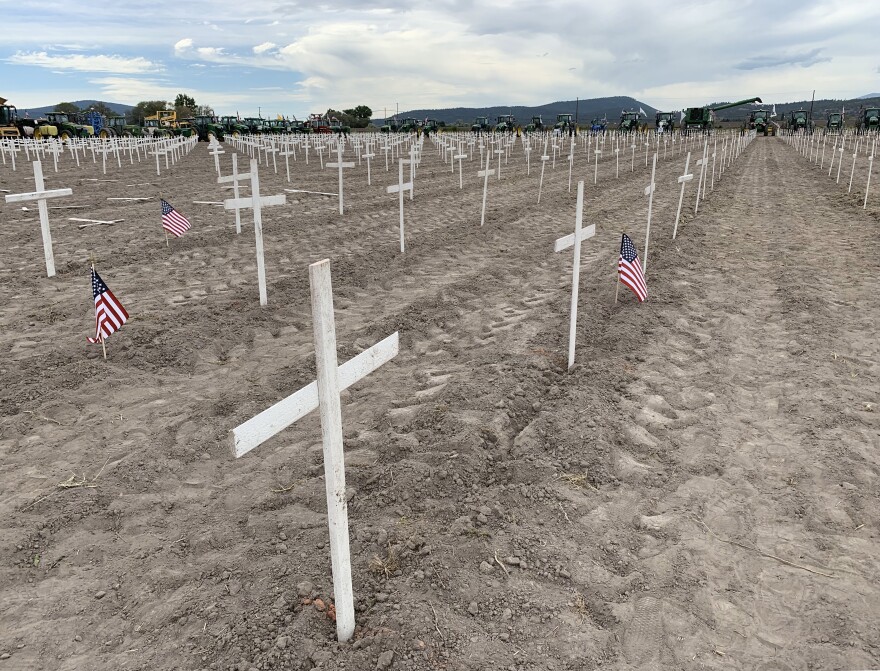The projected 33,000 acre-feet of water that will be released from Upper Klamath Lake for irrigators this year is a fraction of what farmers need, according to members of the Klamath Water Users Association.
“To put it in perspective, the Klamath Project on a dry year needs about 450,000 acre-feet of water or more, sometimes up to 510,000 acre feet, in a very dry year to get everything wet and make it through the year,” says Gene Souza with the Klamath Irrigation District. “33,000 acre-feet is about 8% of what we need.”
According to Reclamation, 2021 marks the lowest historic water flows into Upper Klamath Lake, which feeds the Klamath Project irrigation system. That supply is further constrained by biological guidelines written to protect habitat for fish species in the lake that are protected under the Endangered Species Act (ESA).
“We all know what this is going to mean for our farms, our families and our community as a whole,” says Ben DuVal with the Klamath Water Users Association. “For some of us it may mean we’re not in business next year. And the ESA unfortunately doesn’t take into account paying a mortgage or providing for your family.”
The historically dry year is also creating a bleak outlook for tribes from Klamath Lake down the Klamath River to the California coast. Extremely low flows in the Klamath River could be devastating for Chinook and endangered Coho salmon that are plagued by a parasite called C. shasta that lives in warm water. Both species of fish are culturally important to the Yurok Tribe.
The endangered Lost River sucker and shortnose sucker in Upper Klamath Lake are culturally significant to the Klamath Tribe. Both also face dangerously low lake levels for survival this year.
“Currently there’s not enough water in Klamath Lake to facilitate east side spawning,” says Don Gentry, chairman of the Klamath Tribes. “Even though there are fish present, they don’t even have access to the spawning beds on the east side of the lake because lake elevation is so low.”
On Tuesday night the Klamath Tribe filed suit against the Bureau of Reclamation in federal district court asking it to reduce water releases from Upper Klamath Lake to preserve habitat, except for those that would risk stranding fish downstream.
“That the Klamath Basin is facing a year of having to triage the needs of endangered species while providing little to no water at all for Project irrigators is just the latest and most glaring sign of how out of balance the Basin has become,” reads a statement from the Klamath Tribe.
On Wednesday Gov. Kate Brown issued a statement saying her office is working with Oregon’s congressional delegation to secure financial help for irrigators affected by the unprecedented drought conditions.
“I have spoken with Oregon’s congressional delegation and we are united in our pursuit of all avenues of relief for the Klamath Basin,” she wrote.
The Bureau of Reclamation will provide $15 million in drought response aid to Klamath Project users. A state emergency drought declaration issued on March 31 is also allowing for more groundwater pumping in the basin to make up for the shortage of surface water.



